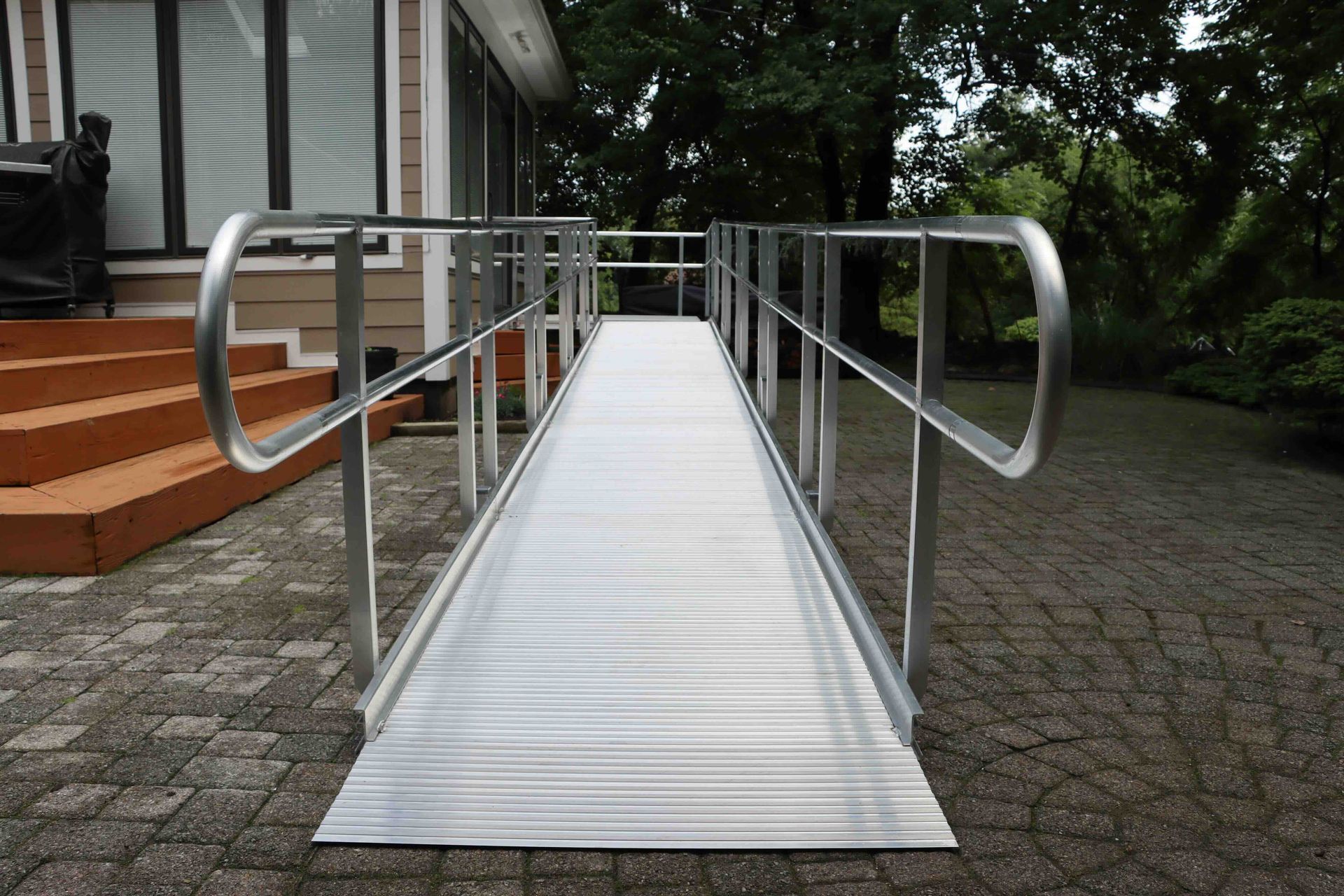10 Better Ways to Handle Disabilities as Parents
Parenting is a journey filled with immense joy, profound love, and its fair share of challenges. When a child has a disability, this journey takes on unique dimensions, demanding extra measures of understanding, resilience, and proactive engagement.
Navigating the landscape of therapies, educational plans, and societal perceptions can feel overwhelming at times.
However, by adopting specific strategies and cultivating a particular mindset, parents can not only effectively support their child's development but also foster a thriving family environment. Lakeshore Barrier Free presents ten powerful approaches to empower parents as they handle life with grace and strength.
Are you looking for an expert resource in accessible spaces, special modifications for persons with mobility challenges, and more? Contact Lakeshore Barrier Free today.
1. Discover and Enrich Your Child's Strengths
Often, when a child has a disability, the initial focus tends to be on the areas where they face challenges.
While addressing these challenges is undoubtedly important, it is equally crucial to actively seek out and nurture your child's inherent strengths and talents. Every individual, regardless of their abilities or disabilities, possesses unique skills and interests.
By shifting the lens to identify what your child excels at or shows a natural inclination towards, you can unlock pathways to their growth and self-esteem. Perhaps your child has an exceptional memory, a remarkable artistic flair, a deep understanding of patterns, or an uncanny ability to connect with animals.
2. Manage Difficult Emotions
The journey of parenting a child with a disability can evoke a wide range of intense emotions. Parents may experience feelings of grief over lost expectations, anxiety about their child's future, frustration with systemic barriers, or even guilt.
It is essential to acknowledge and validate these emotions rather than suppressing them. Pretending that everything is fine or feeling ashamed of difficult feelings can lead to emotional burnout and hinder your ability to effectively support your child. Allow yourself to feel what you feel without judgment. Recognize that these emotions are a natural response to a complex and often demanding situation.
3. Balance Other Responsibilities
Parenting a child with a disability often requires a significant amount of time, energy, and resources. This can make it challenging to balance other important responsibilities, such as work, household tasks, and the needs of other family members. It is crucial to actively strive for a sense of equilibrium to prevent burnout and maintain a healthy family dynamic. One key strategy is to prioritize tasks and learn to delegate when possible. Identify the most pressing needs and focus your energy accordingly. Don't hesitate to ask for help from your partner, family members, friends, or community resources. Accepting assistance is not a sign of weakness but rather an act of self-preservation and a way to ensure that all aspects of your life receive the necessary attention.
4. Advocate for Your Child
As a parent of a child with a disability, you are your child's most important advocate. You possess a unique understanding of their needs, strengths, and challenges.
Advocating effectively involves actively working to ensure that your child receives the appropriate support, resources, and opportunities they deserve in various settings, including school, healthcare, and the community.
This might involve communicating regularly with teachers and therapists, participating in Individualized Education Program (IEP) meetings, researching relevant services and programs, and speaking up against discriminatory practices or policies.
Effective advocacy requires knowledge, assertiveness, and persistence. Educate yourself about your child's specific disability, their rights, and the available resources. Be prepared to clearly and respectfully articulate your child's needs and goals. It is also important to build collaborative relationships with professionals and service providers, working together as a team to support your child's development. Advocacy can sometimes feel like an uphill battle, but your voice is powerful.
Advocacy also extends to your home. For example, investing in barrier-free home construction in Michigan ensures that your child enjoys mobility in a safer environment that takes into consideration unique needs. It’s also a good idea to explore additional modifications such as wheelchair ramps if your child needs these.
By actively advocating for your child, you are not only ensuring their current well-being but also paving the way for a more inclusive and supportive future. Remember that you are not alone in this endeavor; connect with other parents and advocacy organizations to share information, gain support, and amplify your collective voice.
5. Focus on Clearer and Better Communication
Effective communication is the cornerstone of any successful relationship, and it is particularly vital when parenting a child with a disability. This involves not only clearly expressing your own needs and expectations but also actively listening to and understanding your child's unique ways of communicating.
Children with disabilities may have different communication styles, including verbal language, sign language, visual aids, or assistive technology. It is essential to be open to and learn these different modes of expression. Pay close attention to your child's nonverbal cues, such as body language, facial expressions, and tone of voice, as these can often convey important messages.
Creating a communication-rich environment where your child feels safe and encouraged to express themselves is crucial. This might involve using visual schedules, social stories, or other communication tools to enhance understanding. Be patient and allow your child ample time to process information and formulate their responses. When communicating with professionals and service providers, strive for clarity and conciseness.
6. Don't Forget Self-Care
Self-care encompasses any activities that nourish your mind, body, and spirit. This might include getting enough sleep, eating nutritious meals, engaging in regular exercise, pursuing hobbies, spending time in nature, practicing mindfulness or meditation, or simply taking a few moments each day for quiet reflection.
Finding time for self-care can be challenging, but even small pockets of time can make a significant difference. Schedule self-care activities into your routine, just as you would any other important appointment.
Don't feel guilty about taking time for yourself; it is an investment in your overall well-being and your capacity to be a supportive and resilient parent. When you are feeling rested, recharged, and emotionally balanced, you will be better equipped to handle the stresses and challenges that come with parenting a child with a disability. Remember that you cannot pour from an empty cup. Taking care of yourself is not a luxury but a fundamental aspect of sustainable and effective parenting.
7. Patience is Essential
Patience is a virtue that is particularly crucial when parenting a child with a disability. Children with disabilities may learn and develop at a different pace, and they may require more time and repetition to master certain skills.
Frustration and impatience can create a negative and stressful environment for both you and your child. Cultivating patience involves understanding that progress may be gradual and that setbacks are a normal part of the learning process. Celebrate small victories and acknowledge your child's efforts, no matter how incremental they may seem.
Practice active listening and allow your child the time they need to express themselves and complete tasks.
Avoid rushing or pressuring them, as this can lead to anxiety and resistance. Remember that your child is doing their best, and your patient and understanding support can make a world of difference in their confidence and motivation.
8. Open the Doors to Resources and Support for Parents
Parenting a child with a disability can feel isolating at times. However, it is important to remember that you are not alone, and there is a wealth of resources and support available to parents.
Actively seeking out and connecting with these resources can provide invaluable information, emotional support, and practical assistance. This might involve joining parent support groups, connecting with disability-specific organizations, attending workshops and conferences, and exploring online communities.
Support groups offer a unique opportunity to connect with other parents who understand the challenges and joys of raising a child with a disability. Sharing experiences, exchanging information, and offering mutual support can be incredibly empowering and can help reduce feelings of isolation. Disability-specific organizations can provide specialized information, resources, and advocacy on behalf of your child's particular condition.
Workshops and conferences can offer valuable insights into best practices, therapies, and educational strategies. Online communities can provide a convenient way to connect with other parents and access information from the comfort of your own home.
By actively opening the doors to resources and support, you can build a strong network that will empower you on your parenting journey and ensure that you have the knowledge and emotional sustenance you need to effectively support your child.

9. Embrace a Positive Mindset
Cultivating a positive mindset can involve reframing negative thoughts, practicing gratitude for the small victories, and focusing on the present moment. Surround yourself with positive influences and limit exposure to negativity.
Model resilience and optimism for your child, showing them that challenges can be overcome with perseverance and a positive attitude.
When you approach parenting with a sense of hope and belief in your child's capabilities, you not only foster their self-confidence but also create a more joyful and fulfilling family life. Remember that your perspective is powerful and can significantly impact your child's journey.
10. Be Mindful of Family Dynamics
Parenting a child with a disability can have a profound impact on the dynamics of the entire family. Siblings may experience a range of emotions, including jealousy, resentment, protectiveness, or confusion.
It is crucial to be mindful of these dynamics and to actively nurture the relationships between all family members. Ensure that siblings receive adequate attention and support and that their feelings are acknowledged and validated. Create opportunities for quality time together as a family, engaging in activities that everyone enjoys.
Open and honest communication about the child's disability is essential. Explain the situation to siblings in an age-appropriate manner, addressing their questions and concerns. Encourage empathy and understanding among siblings, fostering a sense of teamwork and mutual support. It is also important to recognize that siblings may have their own unique needs and challenges related to having a sibling with a disability.
Provide them with opportunities to connect with other siblings of children with disabilities through support groups or activities. By being mindful of family dynamics and actively working to nurture positive relationships, you can create a strong and supportive family unit where everyone feels valued, understood, and connected.
TALK TO THE EXPERTS OF LAKESHORE BARRIER FREE TODAY!
We believe that everyone should have access to every area of their home! We work directly with you to make sure that every grab bar, bathroom sink, kitchen countertop, patient lift, and more is at the perfect location for you and your loved ones. Call us at
(616) 477-2685 or email us at
Info@LakeshoreBarrierFree.com
Share this blog







